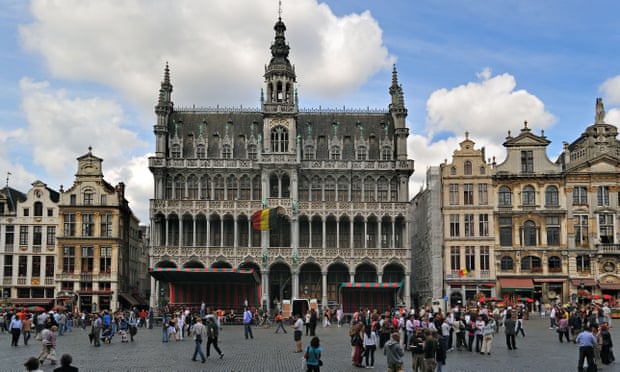
A tour of ancient sewers? An encounter with a 16th-century lacemaking masterpiece? These are two treatments offered to people in Brussels who suffer from depression, stress, or anxiety.
Starting this month, psychiatrists at one of the city’s largest hospitals will be able to offer “museum prescriptions” to their patients. This is a free visit for him to discover one or more of Brussels’ cultural institutions with a few friends and family.
Delphine Hoeba, deputy mayor of Brussels for culture, believes the project is the first of its kind in Europe. Her first aim, she said, is to enhance access to culture after the stressful days of lockdown. Observer“I want everyone to be back in our cultural institutions…but even before Covid, for some people you know it. [was] It’s not easy to open a museum door, they don’t feel safe, they don’t think it’s for them. And I really want to show that cultural institutions are for everyone. I think. ”
A second goal is to give doctors “new tools in the healing process.” The young socialist politician was inspired by a similar project in Canada where doctors have been issuing prescriptions to the Montreal Museum of Fine Arts since 2018.
In Brussels, a six-month pilot project involving five museums under direct control of the city authorities has been running. These include the city’s history museum, contemporary art center, and fashion and lace museums.
Patients may also discover the Sewer Museum, where they can stroll 10 meters underground along the banks of the Senne, Brussels’ hidden river, which was largely paved in the 19th century. Or you can explore the collection of costumes belonging to the statue of Manneken Pis, which has become an icon of Belgian masochistic humor.
The bronze statue of the cherubim features nearly 1,100 costumes, including those that Louis XV of France made amends for the theft of statues by soldiers in 1747, and a gift from the Rolling Stones emblazoned with the band’s tongue logo. there is. Coming in July.
Dr. Johann Newell, a psychiatrist at Burgmann University Hospital, who is participating in the pilot program, said: “Anything that helps people feel good and get in touch with themselves is therapeutic. It could be worth the
He expects the museum’s prescriptions to be suitable for people suffering from depression, anxiety, autism spectrum disorders, psychosis and bipolar disorder. I think,” he said. “It’s probably better suited for someone who is a little further along in the recovery process than someone who is seriously ill,” he said.
Newell emphasized that the museum’s prescriptions are voluntary additions to medication, psychotherapy, individual or group therapy, exercise, healthy eating, and other forms of relaxation.
“It’s just one of the additional tools that can help people get out of the house, to resocialize and reconnect with society.”
A 2019 review by the World Health Organization concluded that art can help people experiencing mental illness, prompting greater collaboration between cultural and public health professionals.
A successful pilot could open plans to include other museums, cinemas, hospitals and patient groups. Older people and children, as well as those recovering from brain injuries, could benefit, Newell suggested.
Houba, who was president of Brugmann Hospital before the 2019 election, said the one-page prescription was designed to be as simple as possible. People don’t have guides or anything special.
Patients had conversations with their doctors before and after their visits, who would check “what the experience was like for them, what they liked and what they didn’t like,” Newell said. As well as an opportunity to reconnect with, he sees it as an opportunity to step away from the hustle and bustle of life for quiet contemplation. “Our society is very busy, full of stress and stimulation.
